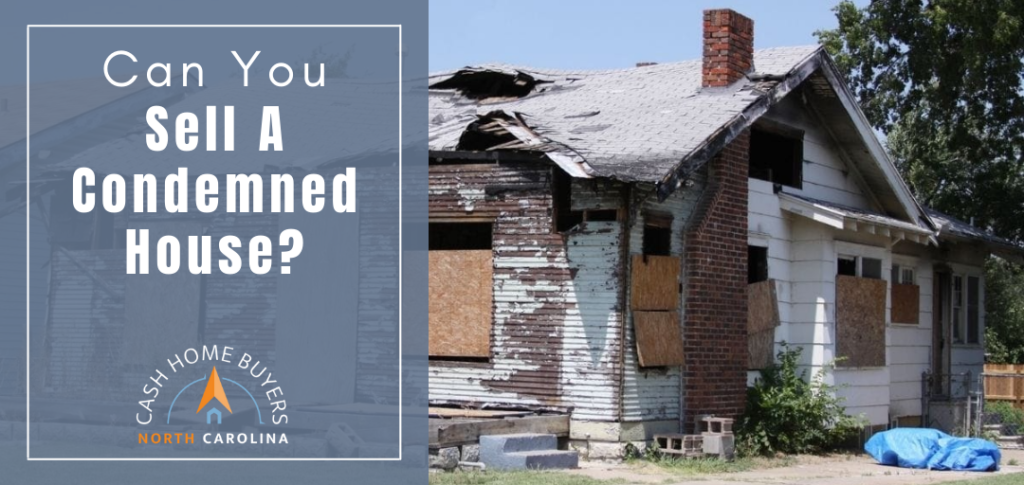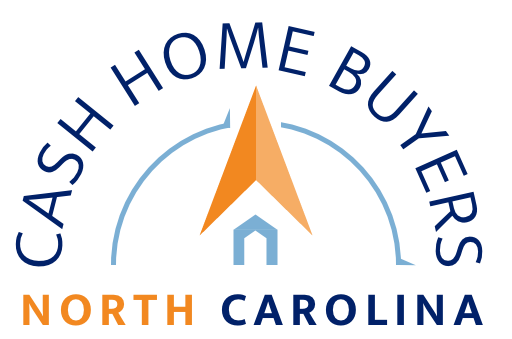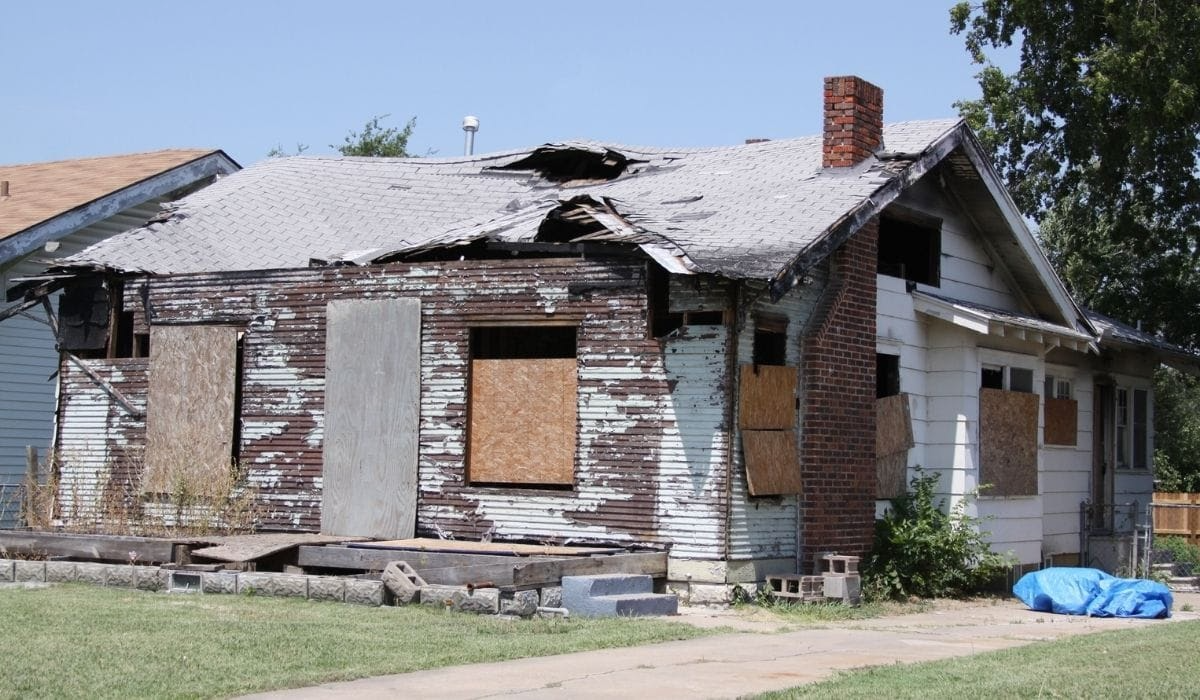
What is the very first thought that comes to your mind as soon as you hear the phrase condemned house? Most people tend to think a of a house that is either dilapidated or spooky with caved-in roofs and creaky foundations. However, this isn’t often the case…
A house gets condemned once the government thinks it to be incompetent to live in anymore. No one is permissible to use or live in the property since it’s a safety threat. If inhabitants are living in such a house after it has been condemned, they can be required to move and unable to return unless they make the necessary reconstructions to the house.
So, are you among those who own a condemned house and are considering selling? As soon as you start doing your research, you might find that selling your condemned house is more challenging than one may ever think.
Selling a condemned house as-is can be a lengthy and expensive process. It is difficult to sell a house that has warning signs posted on your door and boarded-up windows. However, the good news is that you can work with an investor to sell the condemned house even in this ramshackle condition…
What Does A Condemned House Mean?
A condemned house is a property that the government body announces unsafe or uninhabitable for humans. It is no longer appropriate for individuals to inhabit because it failed to follow the condemned house rules or committed code violations.
Simply said, no one can use the property or live on the house while it poses a risk to their lives. As soon as the government considers a property dilapidated, they may remove utilities from that house to discourage individuals from living there anymore.
In most cases, the government condemns properties because the owners have caused certain code violations. The government can even condemn new houses if the builders were unsuccessful at following the construction code that the local authorities ordered.
As soon as a property gets such a tag, the owner and creditors will get a notice. This is followed by the concerned authorities putting a public warning sign on the front of the house.
What Happens to Condemned Homes?
In most cases, the administration takes hold of a condemned house instantly, and all inhabitants are forced to empty the property immediately. There are then signs posted around the house to alert people around the neighborhood that the home is condemned.
Condemned houses aren’t only eye-sores, but they also can attract vandals, trespassers, and squatters. As the owner, these unwelcome guests can be a safety concern and make it is almost impossible to get your property back into its previous shape.
Further, while a condemned home can’t be lived in, it may still need to be winterized to stop further mutilation such as frozen water piping. This means that the administration may have the authority to shut off gas and water, have the plumbing gears drained of water, etc. Shutting off these utilities also discourages people from living in the condemned property.
Grounds For House Condemnation
For a house to be declared condemned, there are some rules that may cause a local administration to condemn a house:
- All utilities associated with the house haven’t been installed or have been cut, including electricity and water.
- The home has been completely abandoned and emptied for a long period of time.
- The house has been damaged, abused or neglected to the point of safety violations.
- Following a house inspection, the inspector reports that certain threats in the house may be a risk to the well-being and safety of humans.

There are further reasons that may cause a house to be condemned, such as renovation that hasn’t been done per regulations or missing permits.
However, for a home to be condemned, it has to be considered unfit by the government entity. This means that there has to be a noticeable violation showing that the house cannot be lived in.
Building code abuse can lead to a house that is structurally unreliable. Storm damage, water damage, bad construction, and fire damage are noticeable signs to a government entity. In these houses, there are more likely to be evident signs that there’s black mold, which leads to respiratory health problems.
Rodent invasion is another cause for condemnation, as well as signs of manufacturing toxins or evidence that unlawful drugs were made on that particular property. Further, if a house has been vacant and neglected for a long period of time, it can be declared condemned.
How Does the Procedure Work for Condemning Property?
As soon as a private building or property is declared condemned, the owner is generally sent a notification of condemnation. This is simply a notice in writing that the property is condemned, and anyone inhabiting the property will need to vacate immediately.
In the case your property is declared condemned, it is important to reply to the notice in a timely manner and seek legal counsel.
You may need to appear in court to report the cited matters and fight to keep ownership of your condemned house. To recover from condemnation and keep the property, you most likely need to renovate to bring the house up to city codes.
During the repairs, you will still have to pay the homeowner’s insurance, utilities, property taxes, and mortgage payments (if you do not own the house outright). If you want to skip the costly repairs and be done with your condemned house, working with an investor might make more sense.
Another issue condemned property owners have to deal with is unwelcome visitors. To keep persons out of the condemned property, the government agency will post a sign on the outside of the building that says it is not fit for habitation. However, that does not mean that unwanted visitors will not come.
Condemned houses attract trespassers and squatters. Any damage these people do will further diminish your house and its value. As such, it is important to decide quickly what you want to do with your condemned property.
Legal Requirements For Condemned Properties
A local government entity has the authority to seize property for public use. However, they must compensate while doing so. This procedure, otherwise recognized as eminent domain or condemnation, involves the government taking both physical possession and legal title of the property.
Another way the local government can seize property is through “inverse condemnation“. Here, the government agent leaves the lawful title of the house to the proprietor but controls every likelihood of the property’s practicality.
Can You Sell A Condemned House?
If you are the owner of a condemned house and are wondering , “Can I sell my condemned property?,” Well, yes, in most cases, you can. However, there are some things to be cognizant of before selling your house.
Most condemned properties cannot be purchased by retail buyers, as conventional financing will not be an option for them. The lender required repairs that go with FHA, VA, and conventional loans will not be met with condemned houses.
Further, if your home is condemned and the government has seized it, you cannot sell the property, as you no longer have ownership over it.
Who can Purchase a Condemned House?
Real estate investors will have access to a hard money lender to purchase the condemned home. These buyers are a great option for cashing out and avoiding the substantial renovations required by local authorities.
There are also many companies that buy distressed houses for cash. These local cash home buyers will offer you a fair deal for your property or home in an “as is” state, so you can sell all of your headaches and the condemned house to someone who wants to flip it.
How to Sell a Condemned House
Selling a condemned home can be accomplished several different ways. Although listing on the market doesn’t make sense unless you make the necessary repairs, you could still list for sale by owner or work with a cash buyer. Let’s take a look at the process involved in selling a condemned home to ensure the sale goes smoothly.
Determine if the House is Fixable
Before selling your condemned house, it is important to understand whether the home can be fixed or needs bulldozed. Any potential buyer is going to run numbers, and bulldozing versus repairing can cost significantly different amounts.
Going through the process of determining if your house is repairable will help you identify what type of repairs your house needs and whether the repairs are something you want to take on yourself. Making the repairs yourself might mean you end up selling with a realtor. On the other hand, if you choose not to make the repairs, a cash buyer may be a better fit.
You also want to recognize all of the housing code violations that are accountable for the property being condemned. This is something you will need to inform any potential buyers of, so they know exactly what they’re getting into.
Some of the major housing code violations are related to the structure: foundation, roof, plumbing, ventilation, etc. Housing violations vary state to state but can also include light fixtures, heat, electrical outlets, and hot water.
Sell the House with a Real Estate Agent
If you decide to renovate your condemned home and bring it up to code, you can sell it with a real estate agent. An agent will assist you in listing the property on the market, then negotiate with potential buyers on your behalf, and then initiate closing.
It is important to note that real estate agents take a certain commission fee ranging between 5-6%. You will want to be sure that after accounting for the money invested into renovations and paying commission fees you come out net positive.
If it looks like you are going to break even or lose money, you may want to explore what a cash buyer can offer for you property as-is. An investor can save you time and money not to mention the headaches from managing a full gut on your distressed property.
Sell the House to a Cash Home Buyer or Real Estate Investor
In most cases, selling your condemned house to a cash home buyer or a real estate investor in your local area makes the most sense in terms of time and money. This option requires the least amount of financial investment and effort, which is why so many condemned homeowners choose to work with these kind of buyers.
Cash buyers and investors aren’t new to the market and thus, can offer you a decent cash offer on the condemned property. This means you can sell without sinking any money or time into repairs.
Companies who buy houses for cash typically specialize in buying homes “as is”. When you call a company who buys houses for cash, they can arrange a free walkthrough of the property in no time. They will then run numbers to come up with a cash offer at no obligation to you. You can decide whether you would like to continue with selling the condemned house to them or not.
The best part about cash buyers is there shouldn’t be any hidden charges, for example, real estate commission fees or any closing costs. The cash offer you are given is the final price you will have upon closing.
Sell the House For Sale By Owner (FSBO)
You can also try selling the house all by yourself in what is known as “For Sale By Owner” or “FSBO”. However, unless you are making repairs, you will most likely end up selling to a cash buyer because retail buyers won’t be able to get financing.
When selling FSBO, you will have to manage the entire sales process from listing to negotiating to finding an attorney or title company for closing. Further, you will have to advertise your property after dealing with all the repairs, contractors, and inspectors. If you choose to host open houses, you will have to manage people coming in and out, as well as cleaning afterwards.
Additionally, you will still need to pay the purchaser’s agent a commission fee (typically 2 to 3 percent), as well as closing costs. Selling For Sale By Owner is a huge undertaking, let along selling a condemned house FSBO.
Final Thoughts: Can You Sell A Condemned House?
As we have explained, condemned property doesn’t always mean a damaged building. It is a term to declare that a property is no longer safe for habitation. You do not have to surrender because your home is dilapidated, but you will want to decide quickly whether to repair or sell the property to avoid squatters.
A cash home buyer or real estate investor can purchase the property outright and make the repairs so you don’t have to. However, if you have the capital and time to invest in making the necessary repairs, this could be a better option if you want to sell on the market or live in the home again.
FAQ:
Q. Can you buy a house that is condemned?
A. Yes, a condemned house that is for sale can be bought. However, if the buyer is planning to use conventional financing, the house may not pass the lender required repairs. To purchase a distressed property, the buyer usually needs access to a hard money lender or cash. This makes investors and cash buyers better fits for buying condemned houses than retail buyers.
Q. Can you flip a condemned house?
A. Yes, if the house is repairable, it can be flipped. However, it will need brought up to code standards and pass inspections along the way. Flipping a condemned house is a large undertaking, which is why most owners of condemned houses sell to investors or cash buyers.

